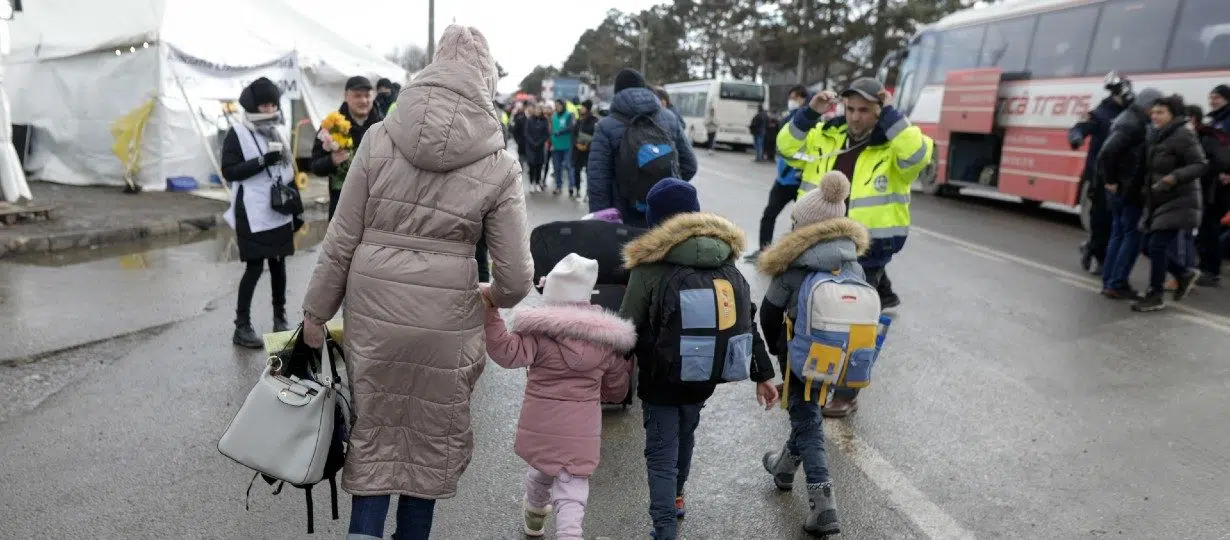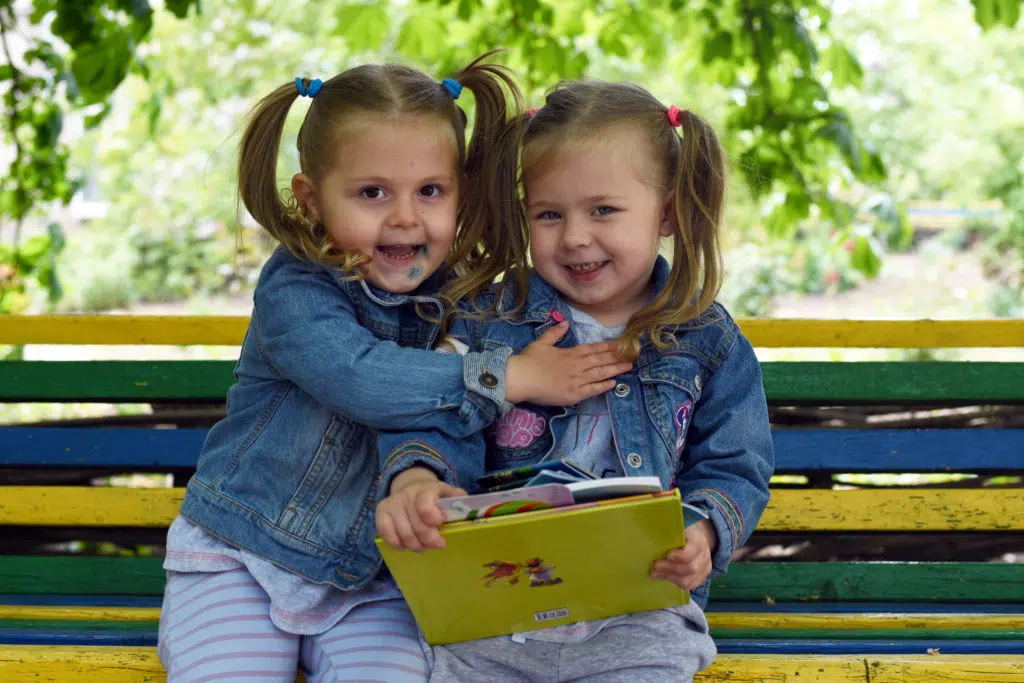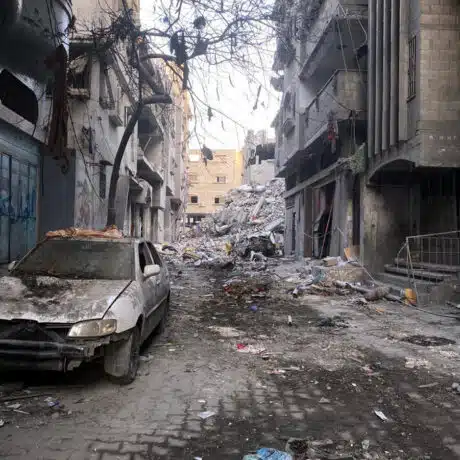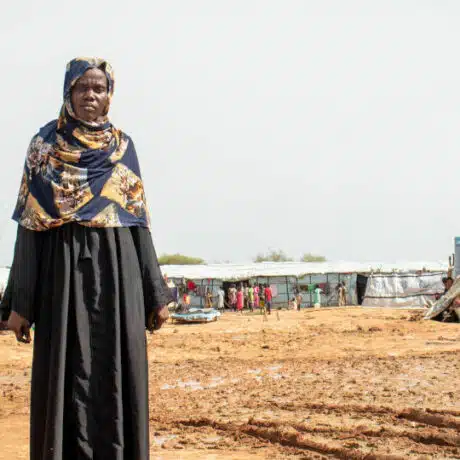News and Stories - Emergencies - 15 August 2022
Ukraine: 6 Months On

Six months since the escalation of conflict in Ukraine the humanitarian crisis continues, and everyday children and their families are living through events most of us can’t even begin to imagine. Lives continue to be lost and more are being forced to flee their homes.
To date, Plan International has reached more than 150,000 people in Moldova, Poland and Romania, and today we’re highlighting the current situation, and taking a look back at the emergency response and impact we’ve been able to deliver so far, thanks to your generous support.
THE CURRENT SITUATION
As of August 2022:
- 5.8 million Ukrainians are now refugees
- 6.3 million Ukrainians are internally displaced
- 5237 civilians have lost their lives, including 348 children
- One in five schools have been damaged.
A place to call home
While some Ukrainian families have returned to their homes, others continue to flee as frontlines shift and critical supplies like food, gas and water run out. Refugees are still arriving in neighbouring countries like Poland, Moldova and Romania each day, while even more families are displaced inside of Ukraine.
The psychosocial impact
Even after reaching a place of safety, children will often bear the invisible wounds of conflict. Many have seen their homes destroyed by bombing or missile strikes, or have been forced to flee because of fighting, leaving loved ones behind.
This takes a heavy toll on the mental health and wellbeing of children and adults alike, which is why it’s critical that children and their caregivers get the support they need to process the traumatic events they have been through. They need access to safe, protective environments, as well as opportunities to learn, express themselves, make connections and feel supported.
The education of an entire generation of children has been interrupted by the conflict in Ukraine. Attending school is a major lifeline for children in times of crisis, and provides a sense of safety and normality, so getting children back into classrooms is crucial.
Unique challenges for women and girls
We know that girls and women face unique challenges in crisis situations. The risk of violence doesn’t end once they have escaped the conflict zone. In neighbouring countries, particularly at border points, there is a high risk of trafficking and exploitation. This is especially true when girls and young women are not accompanied by other family members, lack control of documents and when volunteers offering accommodation and transportation have not been adequately screened or vetted.
Winter is coming and as temperatures plummet, this will bring further hardships to families who have already endured so much. Temperatures will drop below zero, making it all the more important that we act now to make sure families have access to safe shelter, warm clothing, food, water and other essentials.
HOW WE’RE RESPONDING
Plan International is currently working with partner organisations across Poland, Romania and Moldova to support refugee children from Ukraine and their families as they rebuild their lives and settle into a new country. We are also collaborating with civil society and humanitarian agencies to support and strengthen their work in Ukraine.
Child protection, mental health and psychosocial support, education and cash and voucher assistance are our priorities, alongside preparing for harsh winter conditions.
Our response in numbers
To date, we have reached at least 154,929 people with critical support:
- 109,404 in Poland
- 2,575 in Romania
- 42,950 in Moldova.
Our activities have included
- distributing 8,427 food kits to Ukrainian refugees and host families in Moldova, reaching 31,378 individuals
- training 2,769 teachers in Poland to teach Ukrainian children Polish as a foreign language.
- providing mental health, psychosocial and legal support to 191 children and 112 adults in Poland.
- providing 450 women with information on rights, legal aid, documentation or support to find housing in Poland.
- running summer camps for 120 children in Romania, and supporting another 200 children with day trips during the summer holidays.
- reaching more than 1,200 children in Romania with education in emergencies programmes.
- recruiting 53 Ukrainian refugee teachers, helping them to return to work in Romania by providing training in catch-up and remedial classes, including language courses and extra-curricular activities.
Reclaiming a childhood for Liliana and Diana

After fleeing conflict in southern Ukraine, three-and-a-half year old twins Liliana and Diana recently arrived with their mother at a refugee accommodation centre in central Moldova. They are two of more than 2.2 million children from Ukraine now living as refugees.
“We did not get stuck on the road much,” shares their mother Liudmilla in regards to the journey, “but it was still stressful for me, a mother of two little girls. We had no clue where we were going. It is a different country, but what worried me the most were the rumours that a lot of young women with children would simply disappear as soon as they left the country. Their families would lose any contact with them and I understood that I must be extra cautious.”
Finding a place of safety has been vital for children and their caregivers so most afternoons the girls spend time playing at a kindergarten run by Amici di Bambini, one of Plan International’s key partners in Moldova. Since the first day that the refugee accommodation centre began to receive refugees, the kindergarten opened its doors to welcome Ukrainian children of all ages, as well as their parents and caregivers.
“We were received very well and are taken care of,” says Liudmilla. “And my girls absolutely love it here. It took them a day or two to adapt but they feel so much better here than back at home where they were constantly hiding with me in a bomb shelter. They got very agitated hearing the sirens all the time. I did not have a single minute of calmness as I sensed danger all the time and especially when they were outside. And they also felt that about me.”
“During the first days our approach is mostly psychological in order to reduce their anxiety and to draw them into playing in our kindergarten,” explains Nina Secrieru, one of two teachers at the centre. “It was hard in the beginning, because all the children arrived at once, but now you can see they’re slowly starting to smile, they’re playing and they’re not afraid of welcoming a newcomer.”
Today the centre is abuzz with the sound of children joining in games, playing with toys and dashing outside to the playground. Nina recognises the critical role that the centre has played in helping children begin to deal with the trauma that they have witnessed and the opportunity to recapture a semblance of normality.
“Most importantly, they couldn’t balance their emotions, they were absent minded and they couldn’t concentrate on one thing,” says Nina. “Their first drawings were of tanks, painted in dark colours, with a bad vibe – we still have those drawings but we put them aside, so they are not seen.”
Plan International is working with partners to provide mental health and psychosocial support for children and adolescents displaced by the conflict in Ukraine. By creating safe spaces equipped with toys and games and staff trained in psychosocial first aid, children can take part in fun activities, play and return to a normal routine.
Amici di Bambini recognises the importance of ensuring that parents and caregivers are taken care of. Anxiety levels amongst mothers remain high as they deal with their current uncertainty, regular reports of death, destruction and injury from Ukraine, and constant worries for partners, parents and family members they left back home.
As a mother to active twins, Liudmila acknowledges the support given by Nina and her colleague “It is such a great help to me as a mother! They always have something to do. Especially given that my children are in a very active learning phase and they always need to be doing something.”
Plan International is working with local partners to support children affected by the conflict in Ukraine. In Moldova, Plan International is concentrating its efforts on reaching children at transit and refugee accommodation centres and host communities, with a particular focus on underserved areas in the northern and southern regions of the country.
Support our response to the Ukraine crisis by making a donation.





